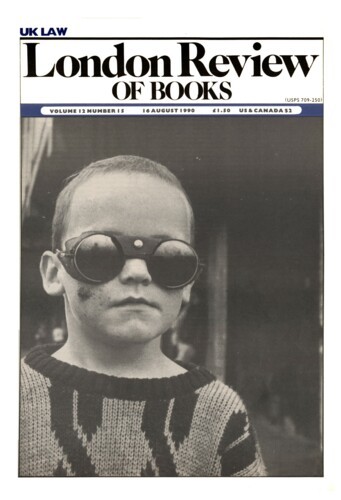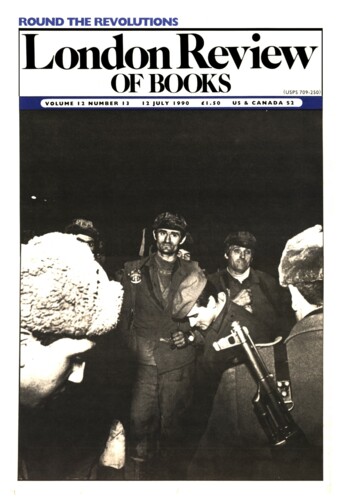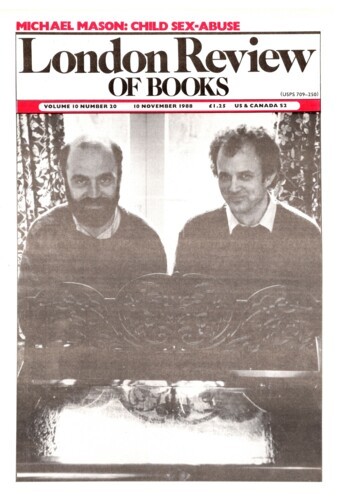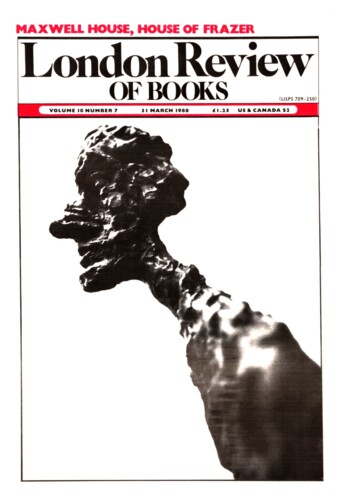The Fatness of Falstaff
Barbara Everett, 16 August 1990
One day early in the 1590s a clown came onto a London stage, holding a piece of string. At the end of the piece of string was a dog. The dog, possibly the first on the Elizabethan stage, I want to leave where it is for a moment. My main subject isn’t Launce and his dog (for this is, of course, the first entry of the clown in The Two Gentlemen of Verona), but the much more complicated character who, charged by the Lord Chief Justice with having led astray the Prince of Wales, answers: ‘The young Prince hath misled me. I am the Fellow with the great belly, and he my Dogge.’ No one now quite follows this joke, which may be an airy reference (to distract attention) to the Man in the Moon. What is more interesting than Falstaff’s ancient joke is his capacity to make us listen to him while he tells it. We concentrate.




